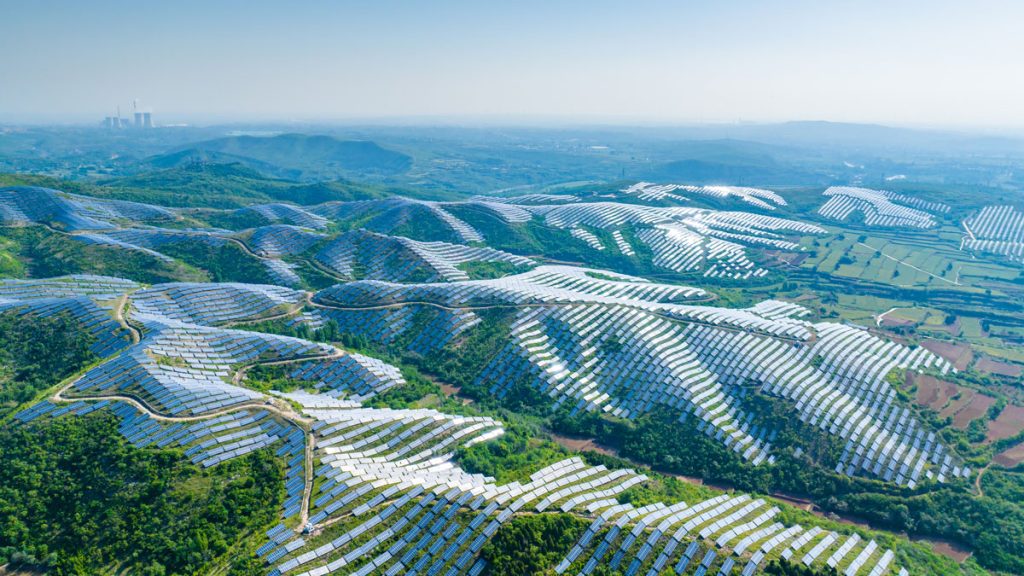As one of the world's leading manufacturers of vacuum pumps, vacuum systems, fans, compressors and gas purification systems, the Busch Group is committed to reducing its own energy consumption, promoting renewable energies and developing innovative technologies that contribute to the fight against climate change. Together, the three brands – Busch Vacuum Solutions, Pfeiffer Vacuum+Fab Solutions and centrotherm clean solutions – drive the development of innovative environmentally friendly technologies.
Application of vacuum technology in the field of solar energy
In the field of renewable energies, vacuum technology plays a key role in the production of solar cells. Through the application of vacuum technology, the production speed of solar cells has been increased, while the service life has been extended and the efficiency has been increased. The Busch Group offers reliable vacuum solutions for all aspects of the solar cell production process and actively promotes its own use of renewable energies. The company is equipped with solar power systems at several sales and production sites in China, Germany, United Kingdom, India, Korea, South Africa, Austria, Romania, Switzerland and Spain.
Support for carbon capture technology
Vacuum technology from the Busch Group also has important applications in the field of carbon capture. The widespread use of fossil fuels has led to an increase in carbon dioxide (CO₂) emissions, one of the main greenhouse gases responsible for climate change. Carbon capture technology aims to reduce the amount of carbon dioxide in the atmosphere, thereby slowing the trend of global warming. The application of vacuum technology in the carbon capture process can significantly improve the efficiency of capture. There are currently two main ways of carbon capture: one is to provide carbon capture solutions for industries with high CO₂ emissions, and the other is direct air capture (DAC) technology, which filters out the carbon dioxide that has already been emitted from the air. Vacuum pumps from the Busch Group are widely used in industrial carbon capture and DAC projects.
Hydrogen: the green energy of the future

Photo: Busch Group drives sustainability (Source: SemiconductorToday)
The Busch Group is also actively involved in the development of hydrogen fuel cell technology. Hydrogen fuel cells are considered a clean and sustainable source of energy, producing only water vapor as a by-product. Unlike fossil fuels, hydrogen fuel cells do not release carbon dioxide or other pollutants, thus avoiding air pollution and the greenhouse effect. Compared with traditional power generation systems, fuel cells have higher energy conversion efficiency and can effectively reduce overall energy consumption. Together, Pfeiffer and Busch have developed innovative products that provide advanced leak detection technology and the latest hydrogen cycle fans to improve the safety and efficiency of fuel cells.
The potential of nuclear fusion technology
The Busch Group is also actively supporting several international fusion projects and is committed to the development of this almost inexhaustible source of clean energy. Nuclear fusion releases energy through the polymerization of hydrogen isotopes, offering great potential for the future supply of clean energy. Fusion on Earth takes place in an almost completely immaterial space, so vacuum technology is the basis for all fusion pathways. Pfeiffer Vacuum+Fab Solutions is an active member of the Fusion Industry Association, providing customized vacuum solutions for the development of nuclear fusion technology worldwide, covering vacuum production, measurement and analysis, leak detection and vacuum chamber design.
Commitment to sustainability
The Busch Group also adheres to environmental protection and sustainability in its production processes. Pfeiffer is committed to the ten principles of the United Nations Global Compact and participates in the Science Based Targets initiative (SBTi), and its plant in Asslar, Germany, has been awarded a Gold EcoVadis sustainability rating in the top 2% of sustainable manufacturing companies worldwide.






